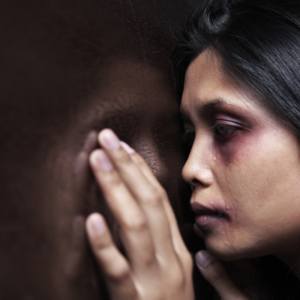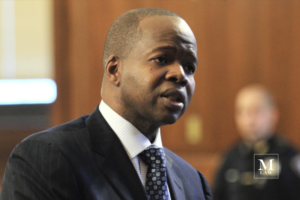A former “Cosby Show” actress on Tuesday accused Bill Cosby of trying to “rewrite” a New Jersey state law amendment she says permits her claims that the disgraced comedian drugged and raped her more than 30 years ago, saying his own words and “simple logic” undercut his bid to defeat her $25 million lawsuit.
Lili Bernard asked a New Jersey federal court to reject Cosby’s motion to dismiss her Oct. 14 complaint on the grounds it does not fall under the amendment allowing untimely sexual abuse claims to be filed within two years of December 2019 because she was not a minor at the time of the alleged attack and he was not convicted of a sex-related crime against her.
Those arguments are “entirely irrelevant, because [New Jersey Statutes Annotated] 2A:14-2a, et seq. explicitly covers claims of sexual assault perpetrated against adults like plaintiff, and there is no requirement under the law that defendant be convicted for there to be a viable claim,” Bernard argued in her opposition brief.
The two-year window set forth in N.J.S.A. 2A:14-2b applied to “an action at law for an injury resulting from the commission of sexual assault, any other crime of a sexual nature, a prohibited sexual act as defined in” one particular state statute, or “sexual abuse as defined in” another specific state statute.
Addressing his first point about Bernard’s age, Cosby said those two statutes applied to cases where the alleged victim was under 18 at the time of the purported incidents. Bernard was 26 at the time of the purported assault in an Atlantic City hotel suite in August 1990, the comedian said.
In refuting that argument, Bernard pointed out how, in reference to the amendment and a related provision, Cosby said in his motion brief that “the Legislature expanded the statute of limitations in cases of child sexual abuse, and for the first time included civil actions for people who experienced sexual misconduct as adults.”
“Because defendant correctly admits that N.J. Stat. Ann. 2A:14-2a, et seq. explicitly provides for claims related to the sexual assault of adults, granting defendant’s motion would require this court to rewrite the law, an act that is expressly prohibited,” Bernard said.
Bernard similarly argued that Cosby is “attempting to rewrite the law in his favor” with respect to his argument about the need for a sex-related criminal conviction in order for the amendment to come into play.
On that point, Cosby argued that the use of the word “‘commission’” means the amendment is only applicable when a defendant has been convicted of “‘sexual assault’” or a “‘crime of a sexual nature.’” Since Cosby has not been convicted of such an offense against Bernard, the amendment does not apply to her claims, he said.
Bernard countered that the amendment does not refer to a criminal conviction as a prerequisite.
“If the Legislature intended to limit the scope of the statute to only those cases in which the perpetrator was first convicted, it would have done so by substituting the words ‘conviction for’ in place of ‘commission of,’” Bernard said. “However, the Legislature did not do so, and the court should not rewrite the law to replace ‘commission’ with ‘conviction.’”
Adding that “simple logic” negates Cosby’s assertion that “‘commission’ and ‘conviction’ are synonymous,” Bernard said his argument is “analogous to saying that every ocean has water, and therefore every water is an ocean.”
“While every conviction involves a committed crime, not every committed crime ends in a conviction,” she said.
Bernard also stressed that the purpose of the legislation behind the amendment was to give victims more time to file claims since they often do not raise the sex-related incidents for many years.
“Given the Legislature’s understanding that victims of sexual crimes often do not come forward for years, limiting the law to cases in which there was a criminal conviction would completely undermine the law’s express purpose and effectively eliminate N.J. Stat. Ann. 2A:14-2a, et seq. Entirely,” she said.
Cosby’s run as Cliff Huxtable on the family-friendly “Cosby Show” earned him the nickname “America’s Dad,” but the comedian’s wholesome image began imploding amid accusations by onetime Temple University basketball coach Andrea Constand that Cosby assaulted her in his Philadelphia-area home in 2004.
Dozens of other women began launching similar accusations around the time Cosby was criminally charged for assaulting Constand in 2015. The closely watched case initially led to a deadlocked jury in 2017, but Cosby was retried and convicted the following year. He was sentenced to three to 10 years in prison in September 2017.
Cosby was released from prison last summer after the Pennsylvania Supreme Court ruled that he’d been improperly prosecuted. The justices pointed to the promise of immunity Cosby had received from former Montgomery County District Attorney Bruce Castor in exchange for his deposition testimony in a civil case Constand launched over the assault.
A few months after those developments, Bernard — who has previously aired her accusations to media outlets — launched the current action alleging Cosby went from being a mentor who said she could call him “‘Daddy’” to a rapist who threatened to “‘erase’” Bernard if she reported the sexual abuse.
After a July 1990 incident when Cosby purportedly squeezed her breasts during a mentoring session, the alleged rape took place the next month at the resort then known as Trump Taj Mahal, the complaint says. In the suite, Cosby prepared “a supposedly non-alcoholic beverage” for Bernard before assaulting her as she went in and out of consciousness, the complaint says.
Cosby’s attorney, Jennifer Bonjean of Bonjean Law Group PLLC, told Law360 on Tuesday in a statement, “The plaintiff fails to explain how the court can make a determination that our client ‘committed’ a crime, outside of a criminal trial, thirty years after it allegedly happened, without violating his constitutional rights in numerous ways.”
“It is fundamentally unjust to force our client to defend against thirty year old claims long after memories have faded, evidence has been lost, and witnesses have disappeared,” Bonjean added. “The reviver amendment purports to open the door to any and all claims no matter when or who but does not provide definitions that allow the court to apply it without violating our clients rights.”
Counsel for Bernard did not immediately respond to a request for comment Tuesday.
Bernard is represented by Jordan K. Merson and Jordan K. Rutsky of Merson Law PLLC.
Cosby is represented by Jennifer Bonjean of Bonjean Law Group PLLC.
The case is Bernard v. Cosby, case number 1:21-cv-18566, in the U.S. District Court for the District of New Jersey.
Original article written by Bill Wichert and published by Law360
–Additional reporting by Matt Fair and Jeannie O’Sullivan. Editing by Janice Carter Brown.








